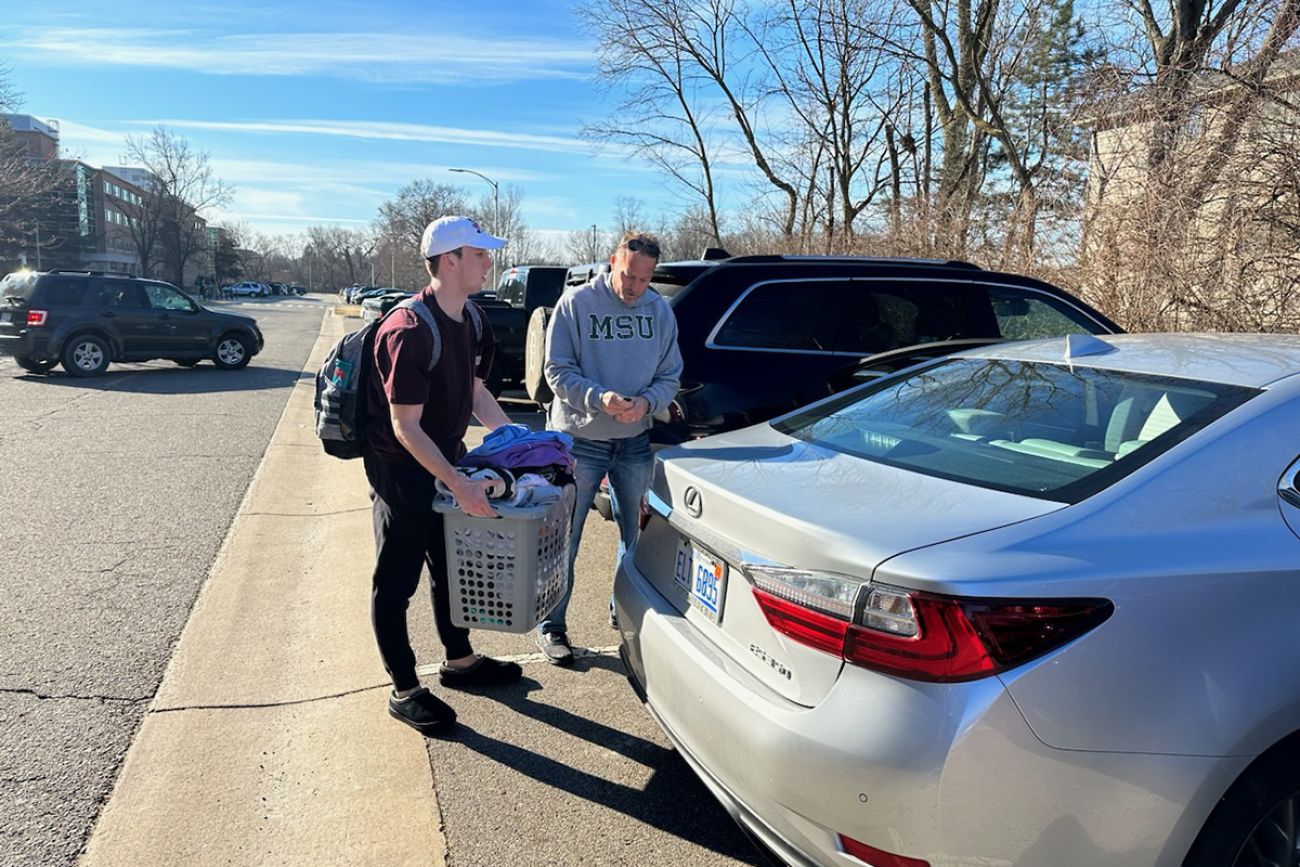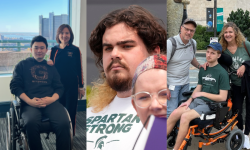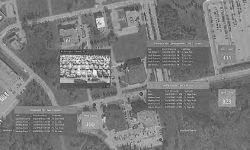Michigan State students have thoughts on whether class Monday is too soon

- MSU plans to hold classes Monday for the first time since the campus shooting
- Some students say they are ready to return, while others want the school to add more security measures
- Faculty say they are ready to be flexible with students, whenever they are back
[Editor's note: This report was updated Friday evening when MSU announced new details in its plan to return to class on Monday.]
The yellow security tape around the MSU Union and Berkey Hall are gone. But memories from last Monday’s mass shooting at Michigan State University continue to weigh on students and faculty as they consider returning to school this Monday, the date when classes are scheduled to resume.
There has been some pushback to renewing academic life so soon, and the MSU administration has said it is still working out what such a return will look like. Early Friday evening, the school sent an email to faculty and staff indicating it will push forward with a return on Monday, despite some student opposition.
"(I)f we don’t come together, we will come apart. Experts note the distinct value of returning to common spaces and practices as a helpful way to find perspective and regain a sense of self and community," the email said.
The school said it will be offering students a "credit / no credit grade reporting option" for undergraduates, an option that they can invoke at any time in the spring semester. Instructors also are encouraged to show students, and themselves, "as much grace and flexibility as you are able," including by being willing to "adjust expectations" on assignments and deadlines. Both Berkey Hall and the MSU Union, the scenes of the shootings, will be closed for classes for the semester.
Related:
- Michigan State sought to be leader in campus security. Upgrades came too late
- From cookies to cash, support floods into MSU after deadly shooting spree
- On Michigan State campus, fragile emotions and a fierce desire for support
- Michigan State shooting updates
- Michigan Democrats move to tighten gun rules after MSU shootings
- Police: Michigan State shooter felt ‘slighted,’ threatened others in note
- Michigan State professor details terror of mass shooting in Room 114
Bridge Michigan interviewed more than a dozen students and faculty in recent days about what they believe a return to school should look like following campus shootings that left three students dead, five critically injured and tens of thousands of students and their loved ones shaken.
First-year student Dev Dhingani went home to Troy following the shootings but told Bridge he feels comfortable attending classes in-person. Still, he plans to refrain from his extracurriculars and the gym at night for at least a week. And he said he would like to see more police around campus.
School of Education Department Chair and Professor Sheneka Williams said she thinks some students have qualms about returning to night classes since the shooting happened at night. For example, she said, students who have night classes wonder if there will be people to escort them if they need it.
Tyler Schmidtke, a first-year creative writing student, has a calculus course scheduled for Monday afternoon. He said the shootings make him feel like the campus is “vulnerable.”
He has several questions for the school to answer, including if a shooting could happen again, has the school learned from what happened Monday and taken new precautions, and “if it’s rational, given the circumstances, to feel safe and to not worry?”
Other students also question what happens next, with a segment arguing that this Monday is way too soon for students to be expected to return to the classroom, whether it’s in-person or remote.
The State News, the student newspaper, published a column by the Editorial board Thursday titled bluntly: “We’re not going to class Monday.”
“We know everyone’s grieving is different,” the column reads. “Some people need to go to classes to feel normal, while others need to stay as far from campus as possible. In short, we need flexibility.”
It outlines several accommodations the editorial board said it also would like to see including flexible deadlines in classes, heightened campus security, counseling and “continued transparency.”
“Listen to us,” the board wrote. “Listen to the students who were locked in those rooms and the community that watched and grieved as our school became a shell of its former self.”
Matthew Zierler, an associate professor in MSU’s James Madison College and associate dean at the Honors College, told Bridge he is ready to be flexible with students, whenever they return.
He said he planned to talk to students in his international law class briefly about his feelings on the shooting and allow them to discuss their feelings if they want.
“If I get to content, I’ll get to content,” he said. “If not, I’ll push it back a day.”
Zierler sent out an email the night of the shooting giving students his phone number if they wanted to talk. On Wednesday, he sent them another email that mentioned the vigil, counseling services and the fact that he was postponing the midterm.
“We’re hearing from students that they want to go back to the classroom knowing that it may be different but it’s tough to grieve alone,” he told Bridge. “It’s not going to be normal, it’s not going to be the same, but there’s only so much scrolling on the internet or on social media that I can do.”
MSU Senior Grant Sitterley said he is ready to attend school Monday.
“I feel like as a community it would be best to get back to normalcy as soon as we can to get people comfortable with the place we call home as students,” he said.
There has been much discussion about whether the university should add more security measures to its academic buildings — to make access more restricted like they are for dormitories, where students generally have to swipe their ID cards to enter.
But Sitterley said he feels that adding student ID scanners in buildings would take away “the free flowing of the university’s campus that makes it all feel together as one.”
First-year student Eva Khalil said an extra police presence and “locks on all doors of every single classroom in every single building” could be helpful.
“I think a part of me is ready to try (to return to class), and even if that’s just walking to class and not going into the building I’m just going to keep trying because that’s honestly all that I can do,” she said Thursday afternoon. “I’m going to let myself feel all the emotions and embrace them as I go.”
Marissa Knaak, a graduate student who is also a teacher assistant and handles grading for a course on the history of Holocaust, is eager to return but sees challenges.
“If it were just me as I am now, I would really love to get back to class and learn,” she said. But for undergraduate students who live and learn on campus, “I don’t know how a lot of them are going to do it.”
Michigan Education Watch
Michigan Education Watch is made possible by generous financial support from:
Subscribe to Michigan Education Watch
See what new members are saying about why they donated to Bridge Michigan:
- “In order for this information to be accurate and unbiased it must be underwritten by its readers, not by special interests.” - Larry S.
- “Not many other media sources report on the topics Bridge does.” - Susan B.
- “Your journalism is outstanding and rare these days.” - Mark S.
If you want to ensure the future of nonpartisan, nonprofit Michigan journalism, please become a member today. You, too, will be asked why you donated and maybe we'll feature your quote next time!





